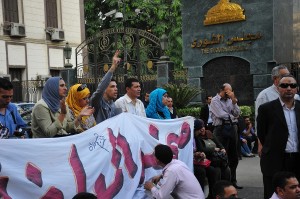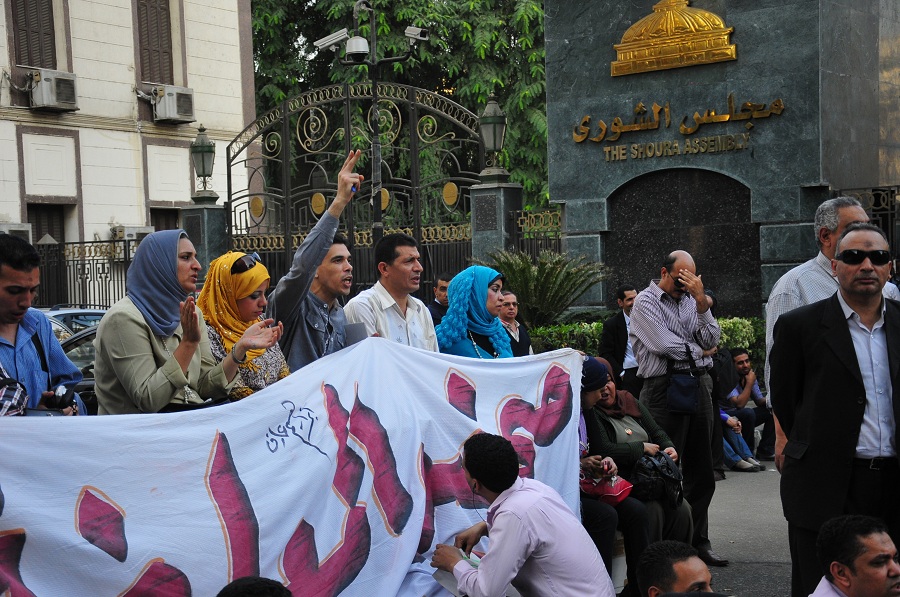
Hassan Ibrahim / DNE
Various protests, for different causes, meant that Wednesday’s session of the Constituent Assembly to be postponed until next Tuesday. Journalists of party newspapers, PhD and Master’s graduates and Nile cotton workers protesting on Qasr Al-Eini caused the street to be closed, preventing many members of the assembly from attending the session.
The session was meant to start at 11am, however by 1pm only 25 of the 100 members had arrived. The road outside the Shura Council building was closed off as the various protests were staged. The biggest of the protests was group of around 100 graduates from various Egyptian universities.
Hassam Farouk, who has a master’s degree in literature, said “everybody here has a PhD or a Master’s degree. We were all promised jobs but we are still unemployed.” Farouk said, “the government has refused to employ us. A paper has been waiting on the desk of the prime minister for a year and a half, and despite the change of personnel for the role, none of them have signed the paper.”
The graduates had blocked the street causing a traffic jam. There were some minor scuffles with the police but it was mostly peaceful. The protestors were eventually moved off the road and traffic flowed again.
They chanted, calling for the signing of the document, which would allow them to work. Farouk added, “we hoped to finish this today but they have said that the paper will be signed at 10am tomorrow morning, so we are staying here until it is signed.”
Next to the graduates was a much smaller group of Nile cotton workers, who were sitting peacefully with their placards. They were complaining that they had not been paid for ten months and were demanding their pay and fair wages.
Further down the street, directly outside the Shura Council building was a collection of journalists from party newspapers. Hala Mohamed, who used to be a journalist for Al-Nour party newspaper said, “nobody here has a job, we have not had a salary for a very long time.” The amount of time the group had been out of work for varied between two months and ten years. Mohamed added, “the Shura Council has a responsibility for us. We want Ahmed Fahmy to help us, it is his duty!”
The journalists had one demand; to distribute them around the national newspapers so that they are able to work again. Mohamed said, “if we have no work, we have no salary, no insurance and no life.” She continued, “we will continue our strike in the journalists syndicate building and if our demands are not met we will begin a hunger strike.”
Yussef El- Ghazaly was fired from Al-Wafd two months ago because he refused to sign a document which would reduce his job security and he encouraged his colleagues not to sign it either. He said, “this shows journalists being treated badly and this is a problem.”




